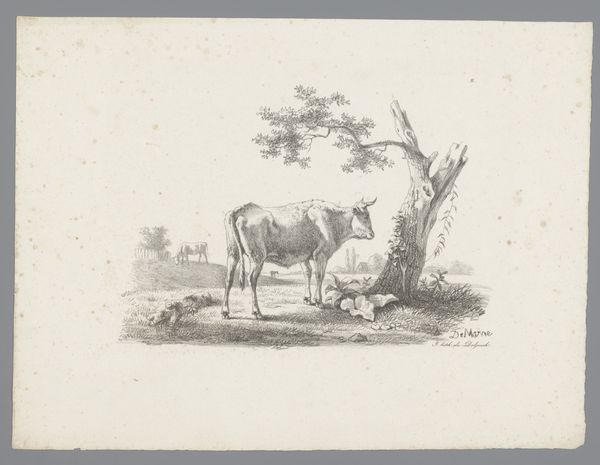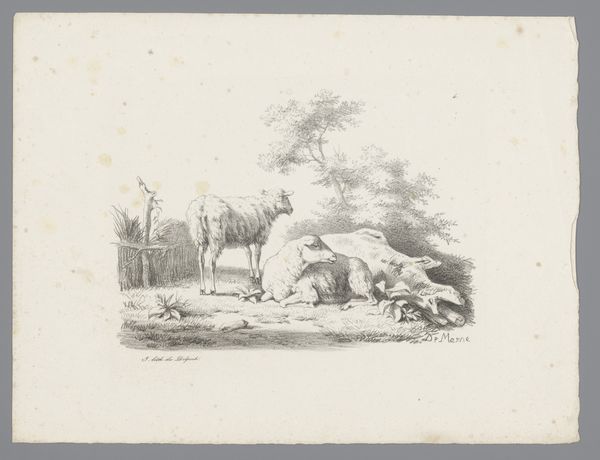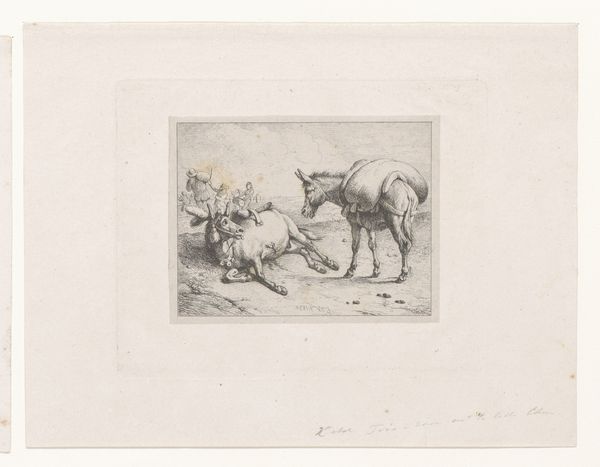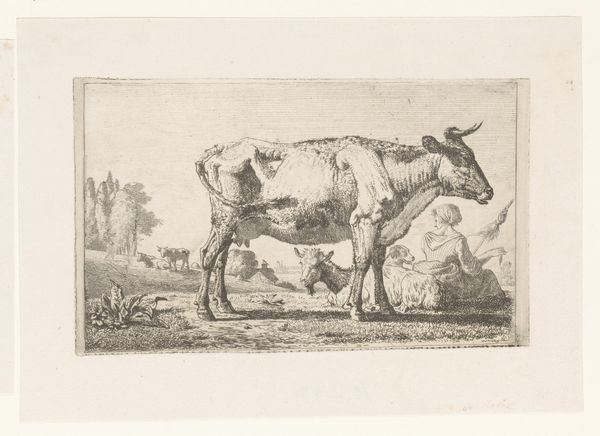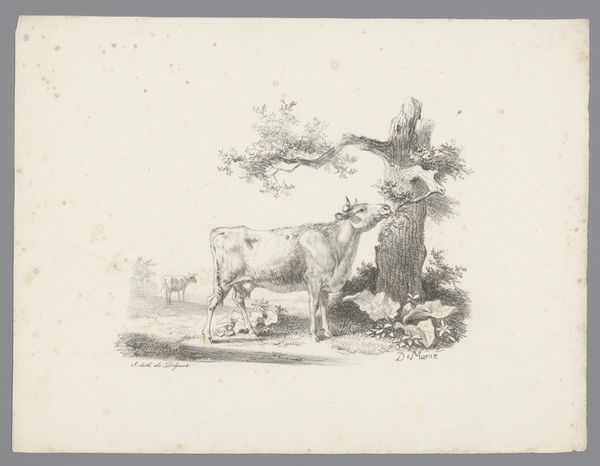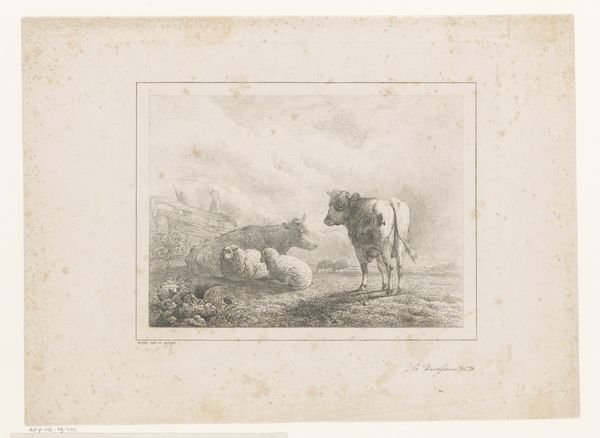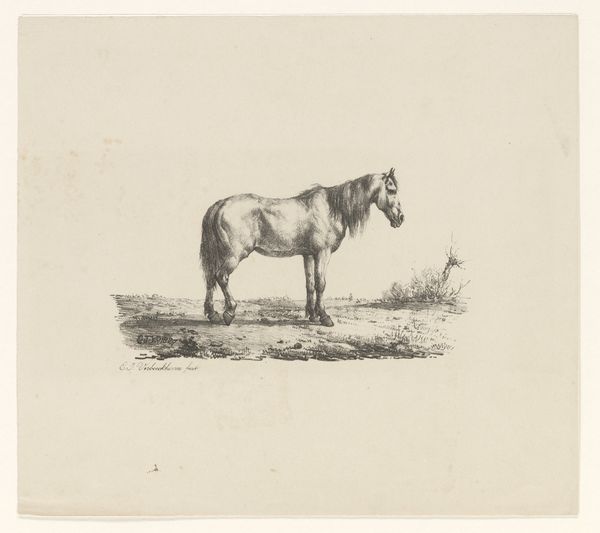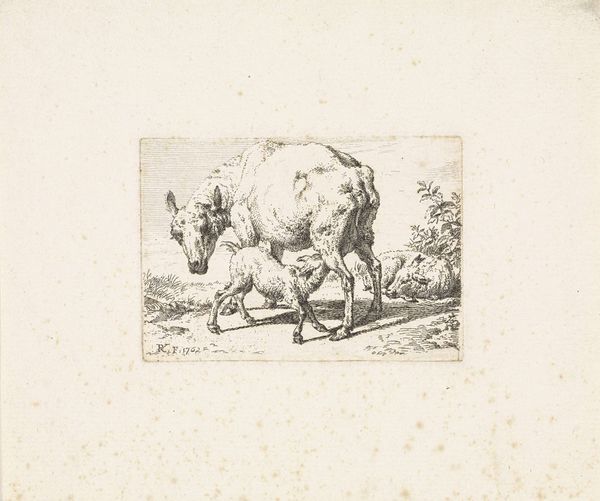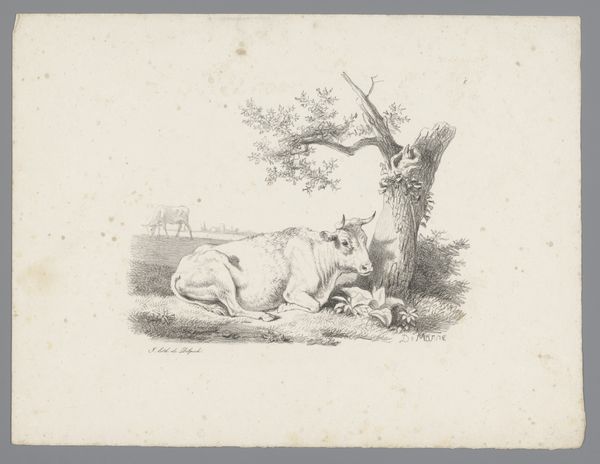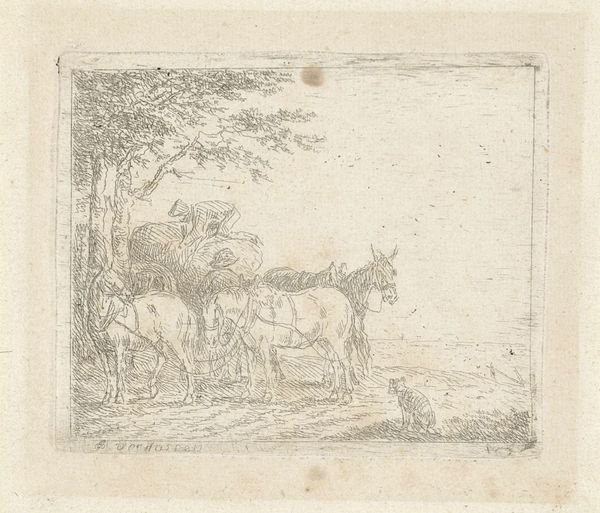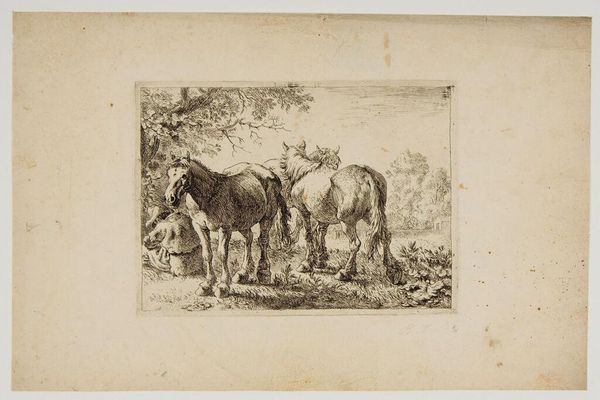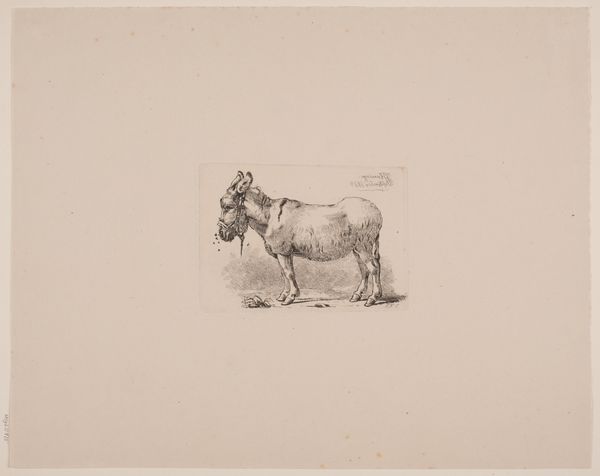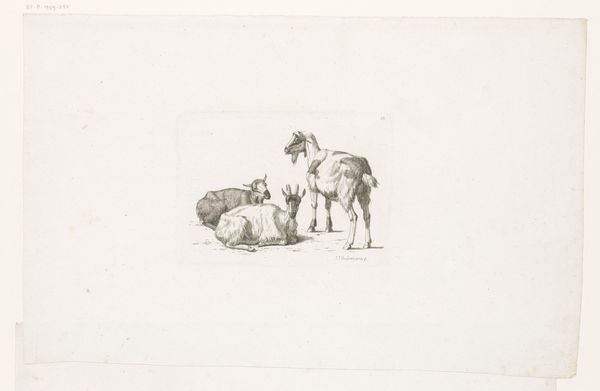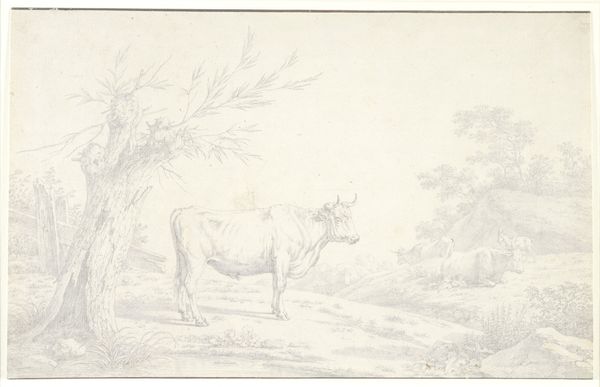
drawing, ink, graphite
#
drawing
#
animal
#
landscape
#
ink
#
romanticism
#
graphite
#
history-painting
#
realism
Dimensions: height 308 mm, width 481 mm
Copyright: Rijks Museum: Open Domain
Editor: Here we have "Ram en stier in een landschap," or "Ram and bull in a landscape," created in 1823 by James de Rijk. It’s an ink and graphite drawing and, at first glance, it strikes me as a rather idyllic, peaceful scene. How do you interpret this work? Curator: The drawing offers a fascinating glimpse into 19th-century attitudes towards nature and agrarian life. Think about it: landscape art at this time wasn’t just about pretty scenery. It reflected socio-economic realities and the idealized vision of rural life many city-dwellers held. Notice how the animals appear placid and almost anthropomorphic, seemingly coexisting harmoniously. Do you think this reflects the reality of animal husbandry in the 1820s, or a more romanticized version? Editor: I'd guess it's definitely leaning toward the romanticized version. It’s a very idealized portrayal, almost pastoral. How might its creation have been influenced by, say, burgeoning industrialization? Curator: Exactly! As cities grew, these images offered a counterpoint, a nostalgic yearning for a simpler time. These images played a crucial role in constructing a national identity rooted in the land. Art like this validated the rural experience and helped soothe anxieties brought on by social change. Could we consider the imagery as conservative? Editor: In some respects, yes, reinforcing a certain social order. Looking at it now, I see that the drawing is far more than just a landscape, it is more of a historical and cultural statement. Curator: Indeed. It reminds us that art is never created in a vacuum. Editor: This discussion gave me so much to think about for this landscape. Thanks so much. Curator: My pleasure! It is exciting to discover such complexities together.
Comments
No comments
Be the first to comment and join the conversation on the ultimate creative platform.
